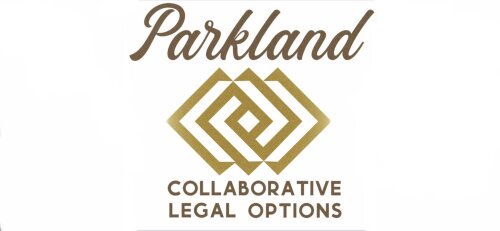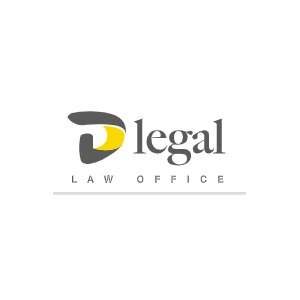Best Banking & Finance Lawyers in Canada
Share your needs with us, get contacted by law firms.
Free. Takes 2 min.
Or refine your search by selecting a city:
List of the best lawyers in Canada
About Banking & Finance Law in Canada
Banking and finance law in Canada encompasses a wide range of regulations and practices governing financial institutions, transactions, and the financial activities of individuals and businesses. This includes areas such as lending, investment, securities, and risk management. The laws are designed to ensure the stability and integrity of the financial system, protect consumers, and promote fair practices. The regulatory framework is primarily shaped by federal and provincial laws, with key institutions such as the Bank of Canada, the Office of the Superintendent of Financial Institutions (OSFI), and the Financial Consumer Agency of Canada (FCAC) playing significant roles in oversight and enforcement.
Why You May Need a Lawyer
Individuals and businesses may require legal assistance in the field of banking and finance for several reasons:
- Loan Agreements: Negotiating and drafting of loan agreements to ensure terms are fair and legal.
- Regulatory Compliance: Navigating complex financial regulations and ensuring compliance with federal and provincial laws.
- Dispute Resolution: Resolving conflicts between creditors and debtors or disputes with financial institutions.
- Fraud and Financial Crimes: Addressing issues related to fraud, embezzlement, or other financial crimes.
- Mergers and Acquisitions: Providing legal support during mergers or acquisitions involving financial institutions.
- Investment and Securities: Ensuring compliance with securities laws and regulations when investing or raising capital.
Local Laws Overview
Banking and finance in Canada are primarily governed by federal legislation, although provincial laws also play a role. Key federal laws include the Bank Act, which regulates the banking industry; the Financial Consumer Agency of Canada Act, which protects consumers; and the Payment Clearing and Settlement Act, which ensures the smooth operation of payment systems. Provincial laws regulate credit unions and caisses populaires, among other financial services. It is crucial to understand these laws to ensure compliance and to navigate the legal landscape effectively.
Frequently Asked Questions
What is the role of the Bank of Canada in the banking sector?
The Bank of Canada is the country's central bank, responsible for monetary policy, issuing currency, and ensuring the stability and efficiency of the financial system.
Are there any regulations on personal lending in Canada?
Yes, personal lending is regulated to protect consumers, with laws setting limits on interest rates and requiring clear disclosure of loan terms.
How are disputes between consumers and banks typically resolved?
Disputes can be resolved through internal bank Ombudsman services, the Ombudsman for Banking Services and Investments (OBSI), or through legal action if necessary.
What is the regulatory body for securities in Canada?
Each province has its own securities regulatory body, but initiatives such as the Canadian Securities Administrators (CSA) aim to harmonize regulations across provinces.
How does one become a financial institution in Canada?
To become a financial institution, one typically needs to be incorporated and licensed under specific federal or provincial legislation, such as the Bank Act for federally regulated banks.
Can foreign banks operate in Canada?
Yes, foreign banks can operate in Canada, but they must comply with Canadian regulations and obtain the necessary approvals from federal authorities.
What protections exist for depositors in Canada?
The Canada Deposit Insurance Corporation (CDIC) protects eligible deposits up to a certain limit if a member institution fails.
What is the role of OSFI in banking regulation?
The Office of the Superintendent of Financial Institutions (OSFI) supervises federally regulated banks and ensures they adhere to sound business practices and regulatory standards.
Are there specific laws for fintech companies in Canada?
Fintech companies must comply with existing banking and finance laws, although specific guidance may evolve as the industry grows.
How are anti-money laundering regulations enforced in Canada?
Anti-money laundering regulations are enforced by the Financial Transactions and Reports Analysis Centre of Canada (FINTRAC), which monitors compliance and investigates suspicious activities.
Additional Resources
If you are seeking more information or need legal advice, the following resources may be beneficial:
- Office of the Superintendent of Financial Institutions (OSFI): Provides supervision and regulation of federally registered banks and financial institutions.
- Financial Consumer Agency of Canada (FCAC): Offers resources and information on consumer protection in financial matters.
- Ombudsman for Banking Services and Investments (OBSI): Assists with dispute resolution between consumers and their financial service providers.
- Canadian Securities Administrators (CSA): Works to improve, coordinate, and harmonize regulation of Canadian capital markets.
- Canada Deposit Insurance Corporation (CDIC): Provides information on deposit protection for consumers.
Next Steps
If you believe you need legal assistance in the area of banking and finance, consider the following steps:
- Assess Your Needs: Determine the specific banking or finance issue you need help with.
- Research Qualified Lawyers: Look for a lawyer with expertise in banking and finance law in your province or territory.
- Schedule a Consultation: Meet with a lawyer to discuss your situation, understand your options, and get professional advice.
- Gather Relevant Documentation: Collect all necessary documents related to your financial issue for your lawyer's review.
- Follow Legal Guidance: Work with your lawyer to address your issues and ensure compliance with applicable laws.
Lawzana helps you find the best lawyers and law firms in Canada through a curated and pre-screened list of qualified legal professionals. Our platform offers rankings and detailed profiles of attorneys and law firms, allowing you to compare based on practice areas, including Banking & Finance, experience, and client feedback.
Each profile includes a description of the firm's areas of practice, client reviews, team members and partners, year of establishment, spoken languages, office locations, contact information, social media presence, and any published articles or resources. Most firms on our platform speak English and are experienced in both local and international legal matters.
Get a quote from top-rated law firms in Canada — quickly, securely, and without unnecessary hassle.
Disclaimer:
The information provided on this page is for general informational purposes only and does not constitute legal advice. While we strive to ensure the accuracy and relevance of the content, legal information may change over time, and interpretations of the law can vary. You should always consult with a qualified legal professional for advice specific to your situation.
We disclaim all liability for actions taken or not taken based on the content of this page. If you believe any information is incorrect or outdated, please contact us, and we will review and update it where appropriate.
Browse banking & finance law firms by service in Canada
Canada Attorneys in related practice areas.
Browse banking & finance law firms by city in Canada
Refine your search by selecting a city.















